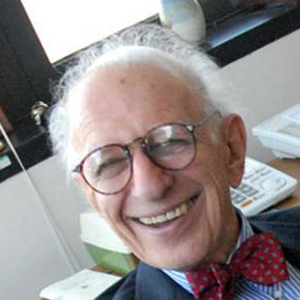Eric R. Kandel is university professor emeritus and professor emeritus of physiology and cellular biophysics, psychiatry, biochemistry, molecular biophysics and neuroscience at Columbia University. He is founding co-director of Columbia University’s Zuckerman Institute, founding director of Columbia’s Kavli Institute for Brain Science, and Sagol Professor Emeritus of Brain Science at the Zuckerman Institute. He was also a senior investigator at the Howard Hughes Medical Institute from 1984 to 2022. In 2000, Kandel was awarded the Nobel Prize in Physiology or Medicine for his studies of learning and memory. He has been awarded 24 honorary degrees. Kandel is the author of “In Search of Memory: The Emergence of a New Science of Mind” (2006), “The Age of Insight: The Quest to Understand the Unconscious in Art, Mind and Brain, from Vienna 1900 to the Present” (2012), “Reductionism in Art and Brain Science: Bridging the Two Cultures” (Columbia, 2016), “The Disordered Mind: What Unusual Brains Tell Us About Ourselves” (2018), and “There Is Life After the Nobel Prize” (Columbia, 2022). He is also a co-author of “Principles of Neural Science” (2021), the standard textbook in the field of neuroscience.

Eric Kandel
University professor emeritus
Columbia University
From this contributor
The creative brain—an edited excerpt from ‘Essays on Art and Science’
In his new book, neuroscientist Eric Kandel explores how sensory perception and higher-order cognitive processes influence our experience of art.

The creative brain—an edited excerpt from ‘Essays on Art and Science’
Eric Kandel: The way forward for autism research
Studying the cellular and molecular mechanisms that underlie autism is crucial to advancing our understanding of the disorder, says neuroscientist Eric Kandel.

Eric Kandel: The way forward for autism research
Explore more from The Transmitter
Dendrites help neuroscientists see the forest for the trees
Dendritic arbors provide just the right scale to study how individual neurons reciprocally interact with their broader circuitry—and are our best bet to bridge cellular and systems neuroscience.

Dendrites help neuroscientists see the forest for the trees
Dendritic arbors provide just the right scale to study how individual neurons reciprocally interact with their broader circuitry—and are our best bet to bridge cellular and systems neuroscience.
Two primate centers drop ‘primate’ from their name
The Washington and Tulane National Biomedical Research Centers—formerly called National Primate Research Centers—say they made the change to better reflect the breadth of research performed at the centers.

Two primate centers drop ‘primate’ from their name
The Washington and Tulane National Biomedical Research Centers—formerly called National Primate Research Centers—say they made the change to better reflect the breadth of research performed at the centers.
Post-infection immune conflict alters fetal development in some male mice
The immune conflict between dam and fetus could help explain sex differences in neurodevelopmental conditions.

Post-infection immune conflict alters fetal development in some male mice
The immune conflict between dam and fetus could help explain sex differences in neurodevelopmental conditions.